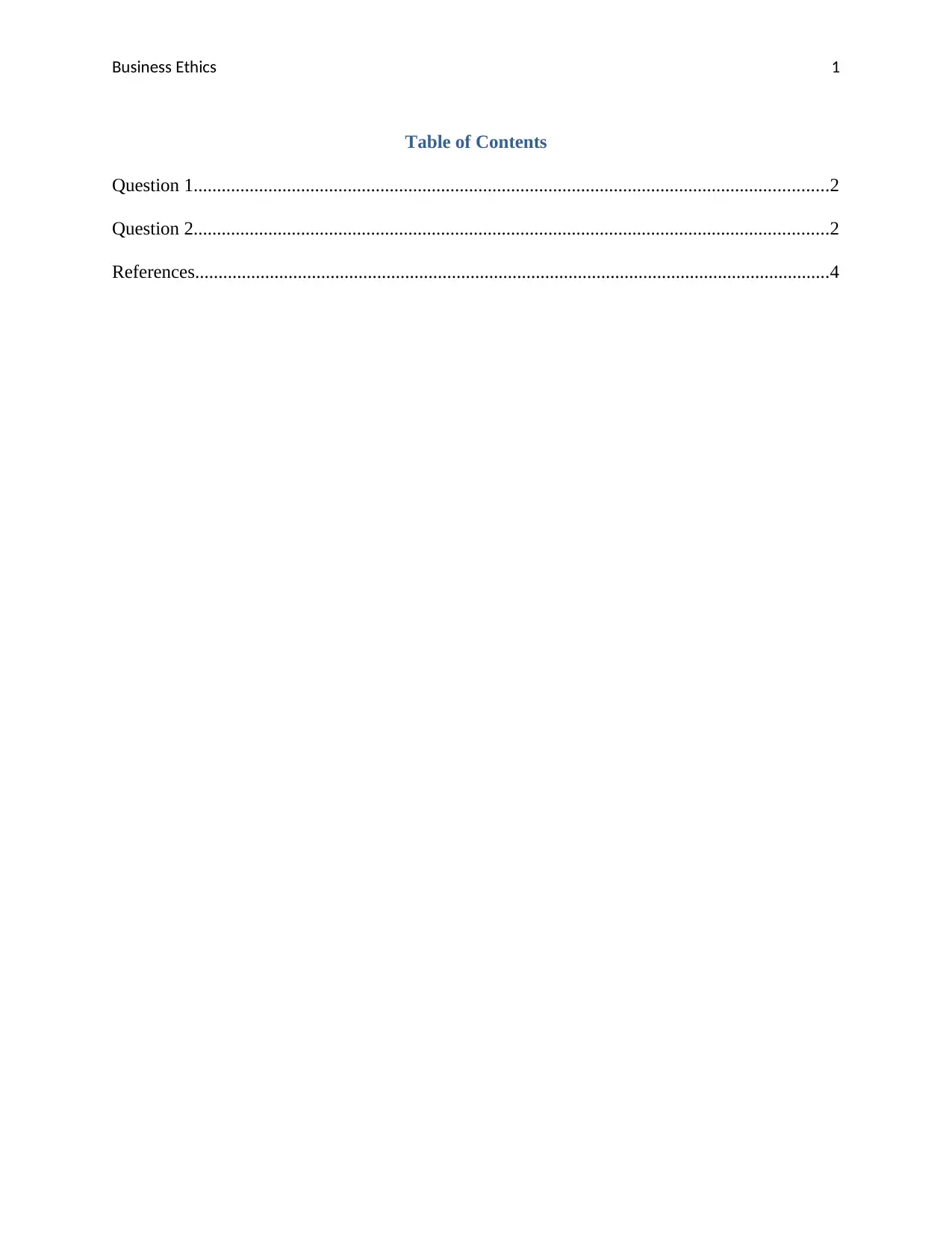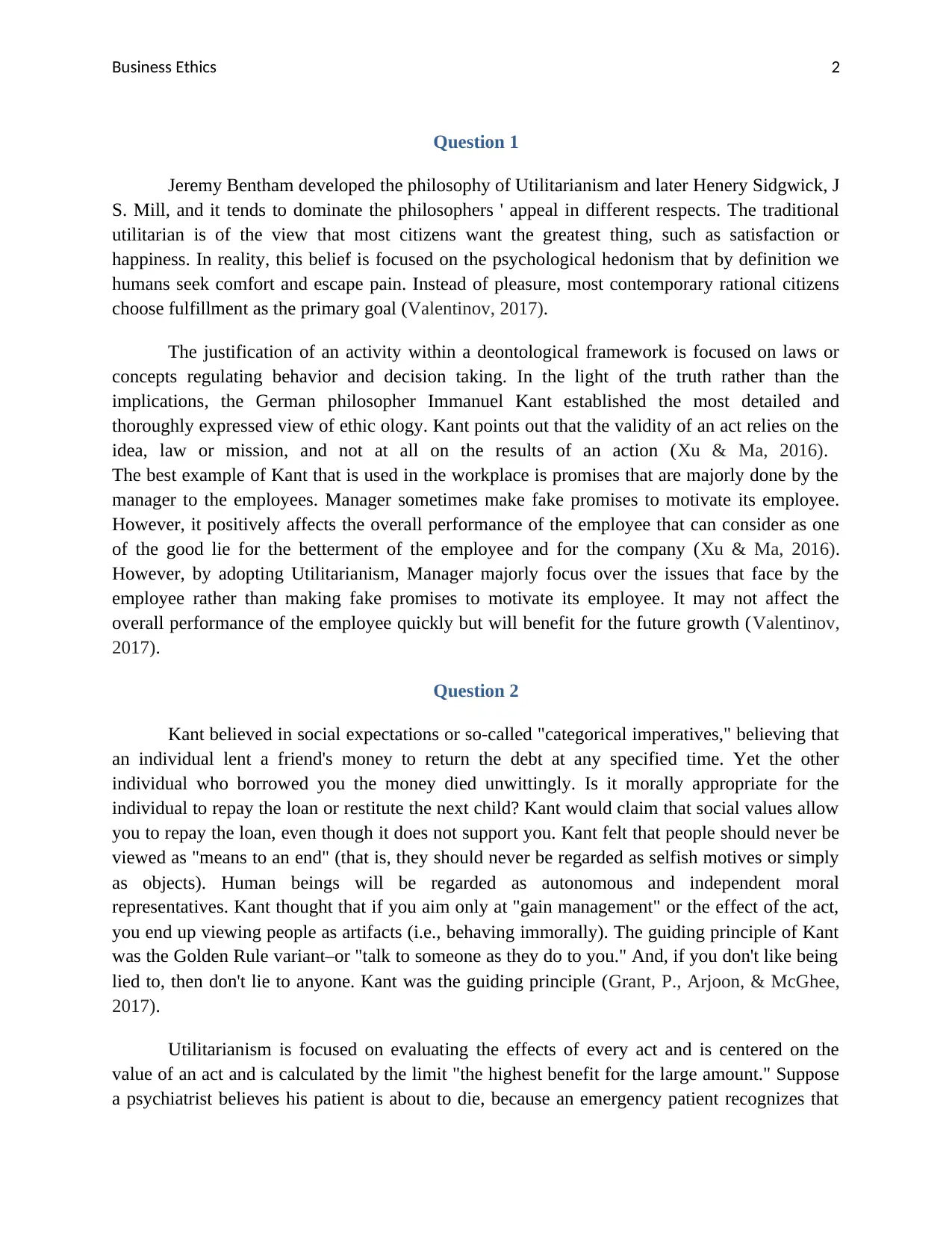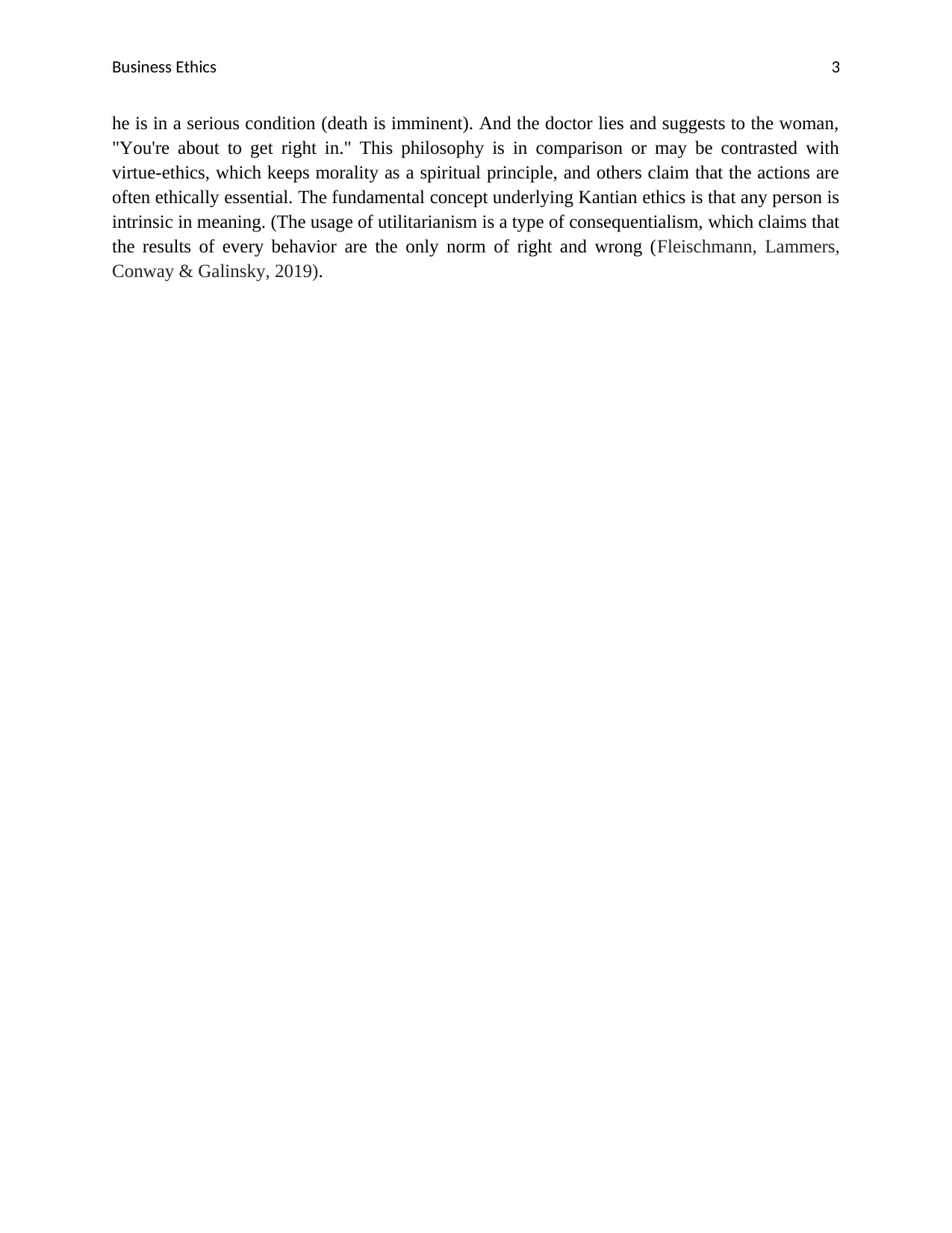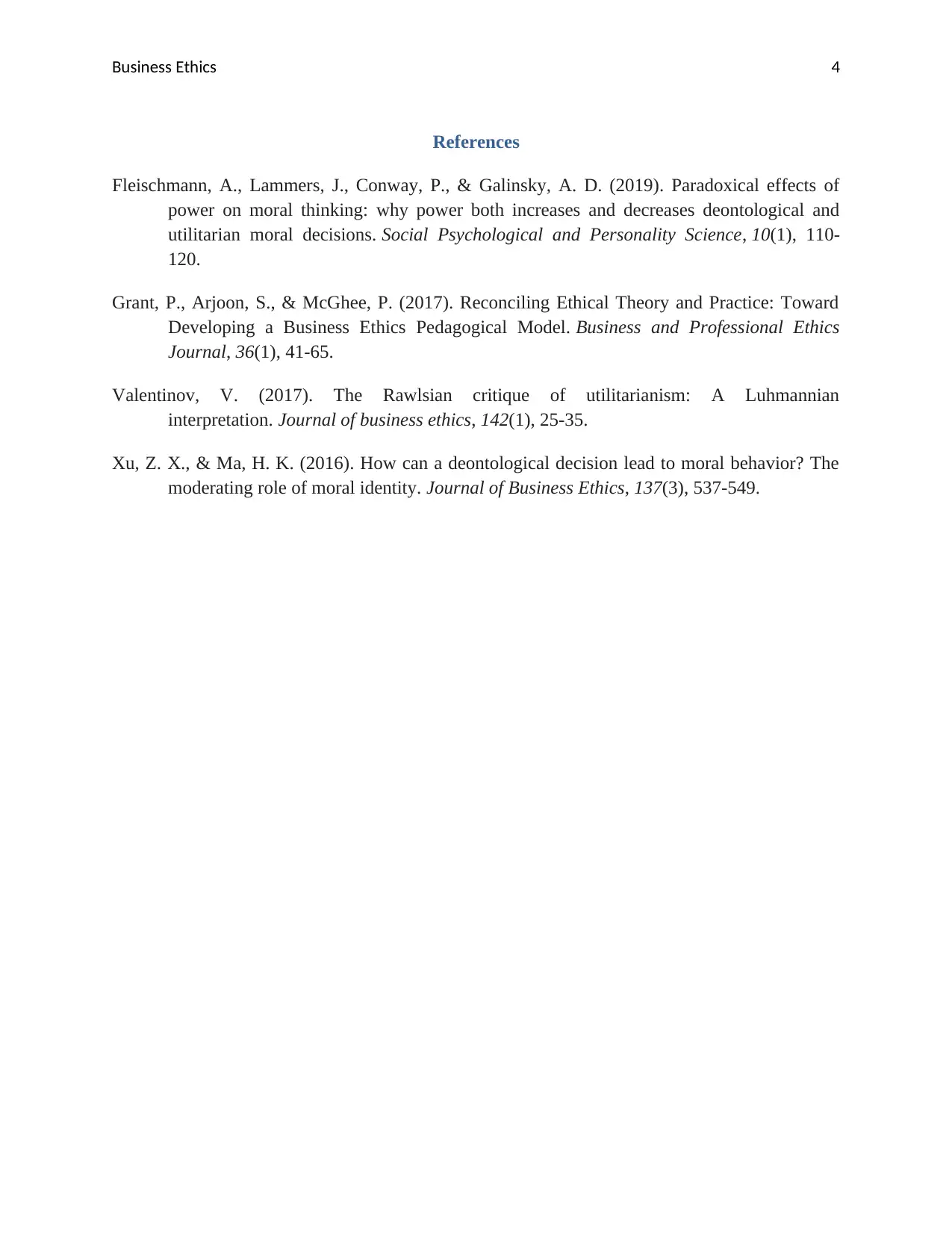Business Ethics Assignment: Ethical Theories, Dilemmas, and Capitalism
VerifiedAdded on 2022/08/24
|5
|884
|19
Essay
AI Summary
This essay delves into the core principles of business ethics, focusing on two foundational ethical theories: Utilitarianism and Kantianism. The assignment begins by defining and comparing these two ethical frameworks, illustrating how they might be applied to resolve a contemporary ethical dilemma in a workplace setting. The analysis then extends to evaluate the benefits and negative consequences of each theoretical tool within the context of capitalism and the free market system, providing specific examples to support the conclusions. The essay highlights the differences in approaches between Utilitarianism, which emphasizes the greatest good for the greatest number, and Kantianism, which focuses on moral duties and principles, particularly emphasizing the importance of not treating people as mere means to an end. The document uses these theories to analyze the ethical considerations involved in business practices, such as making promises and addressing issues faced by employees. It also presents a scenario about repaying a loan and the ethical implications according to Kantian principles. Overall, the essay provides a thorough examination of the practical implications of these ethical theories in the business environment.
1 out of 5






![[object Object]](/_next/static/media/star-bottom.7253800d.svg)